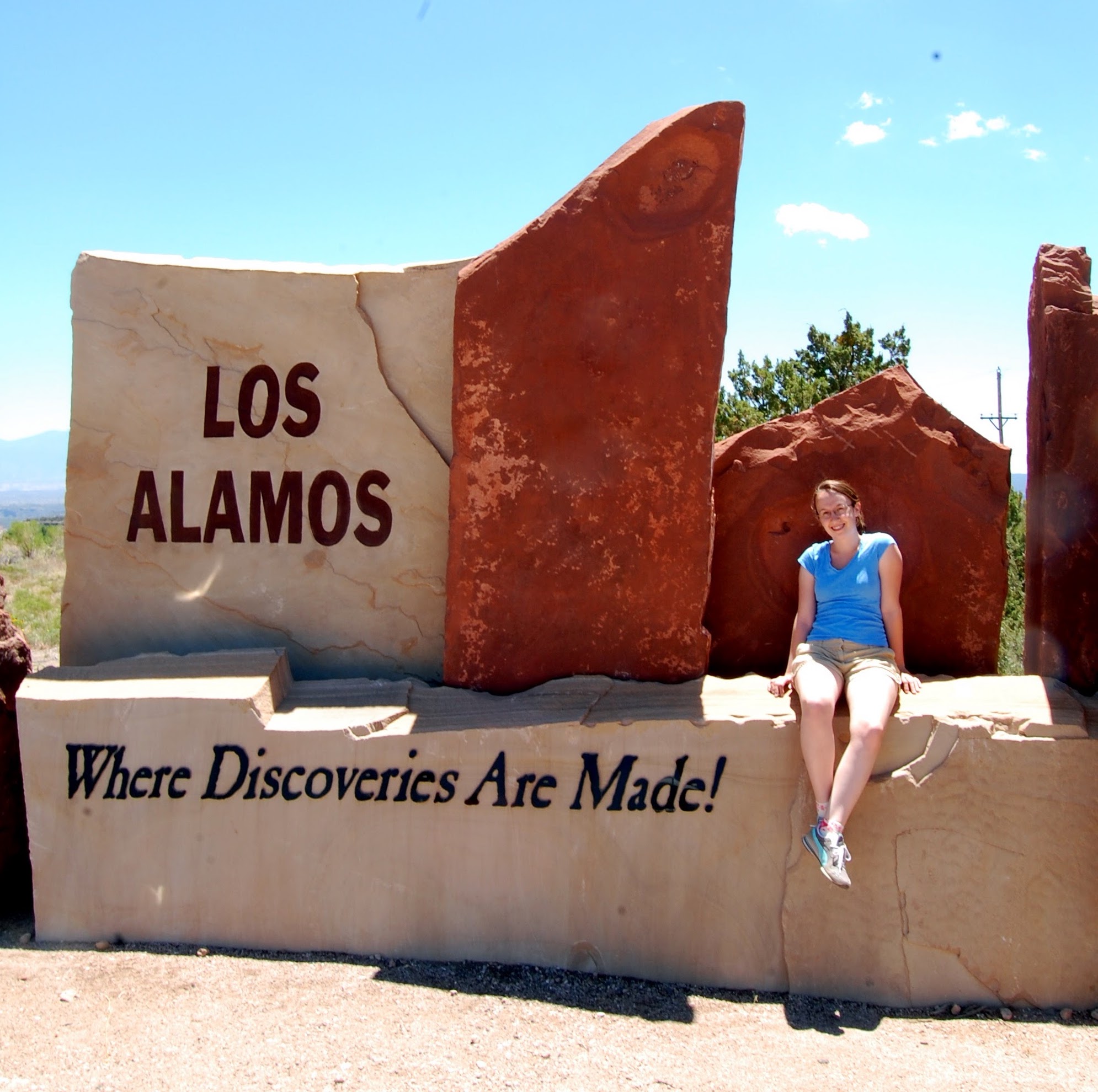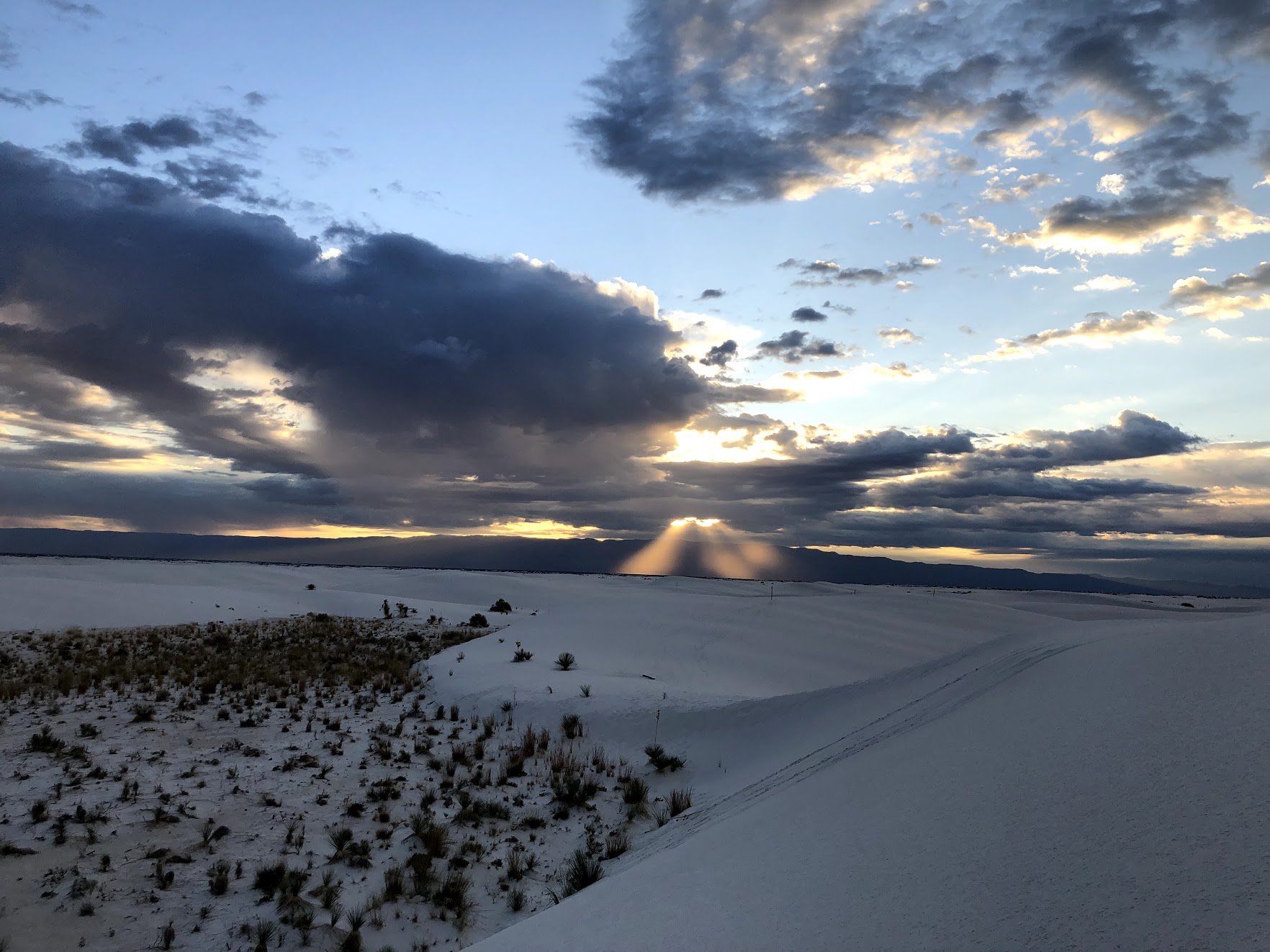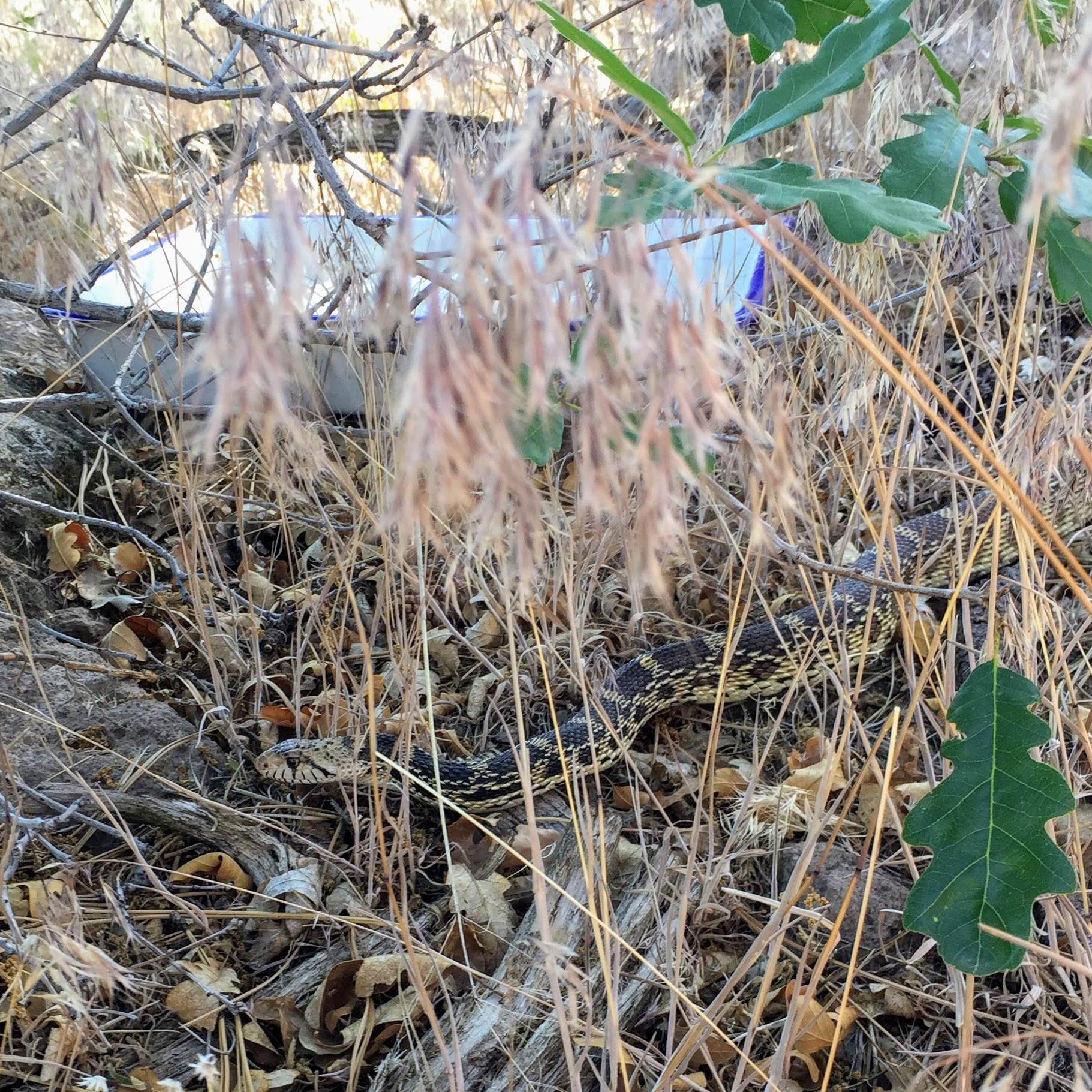May 28, 2020
It’s Poetry Friday again. This month we’re re-visiting old poems, so I’ve been revising things I wrote in college.
This one is about a feeling I had during a quantum mechanics lecture almost ten years ago. I was a physics major then, but I didn’t know yet that I would go to graduate school, become a “real physicist”, and eventually be a staff scientist at the national lab where I had just spent the summer as an intern. I love the more applied work I do now, but the feeling of learning the mysteries of quantum mechanics for the first time will always be special.

July 4, 2010
In the quantum mechanics lecture
On the day I knew I had to become a scientist,
wind came in from the afternoon with voices
from the sidewalk, faint smoke. Glyphs stood
in white on the blackboard: the wavefunction,
the energy, the eigenvalue, the same story
told as holy mystery every October. It started
like a sudden change of scale, a widening
beyond the windows. It wasn’t a blinding glimpse
of grand beauty. Part of it was almost certainly
the caffeine. It was more like the October air,
the pencil in the hand, the pleasure of writing the letter psi,
the adventure in following the steps—to the end.
Please visit my poetry sisters and read their poems!
April 24, 2020
I’ve missed some Poetry Fridays, but I’m back. (Hard to find excuses at the moment!)
This month we wrote Skinnys. From Andi:
A Skinny is a short poem form that consists of eleven lines. The first and eleventh lines can be any length (although shorter lines are favored). The eleventh and last line must be repeated using the same words from the first and opening line (however, they can be rearranged). The second, sixth, and tenth lines must be identical. All the lines in this form, except for the first and last lines, must be comprised of ONLY one word. The Skinny was created by Truth Thomas in the Tony Medina Poetry Workshop at Howard University in 2005.
I sing in a church choir, so by noon on a normal Easter Sunday I would be happily recovering with a mimosa after singing on Thursday night, Friday night, Saturday night, and twice on Sunday. This year I watched a livestreamed service at home. I wasn’t sure I even wanted to watch it, but when I heard the organ start playing “Jesus Christ is risen to-da-ay, a-a-a-a-aaa-le-e-lu-u-ia…” (you know it!) my eyes immediately filled with tears and I was happy I did. I wanted to be walking down the aisle in twos with my choir friends, the organ at maximum volume, Easter magic allowing me to sing several notes higher and much louder than I usually can. Next year, we will.
Here’s a Skinny with some words from that hymn.
207
Let us sing praise of hymns then:
Alleluia!
Never
silent,
ever
alleluia.
Alone,
together,
tomorrow,
alleluia.
Hymns of praise then let us sing!
Please visit my poetry sisters and read their Skinnys!
Poetry Friday is hosted this month by Christie Wyman at Wondering & Wandering.
January 31, 2020
New year, new Poetry Friday procrastination! I’m late, but I’m here. This month we’re writing haiku on the theme of foresight, or the new year.
Haiku
My amaryllis
bulb grew a new shoot this week.
Someone watered it.
I had to travel for work so I was out of the office for about a week. I came back today to find that the soil around my amaryllis bulb is newly damp and it’s growing happily. Thanks, anonymous plant-loving coworker! The lesson of today’s poem is that sometimes you make zero effort and everything is still okay.
Please visit my poetry sisters and read their January haiku!
Poetry Friday is hosted this month by Jone Rush MacColloch at Deo Writer.
October 04, 2019
It’s Poetry Friday, and this month we wrote in the pastoral mode… my challenge choice! Here’s what The Making of a Poem: A Norton Anthology of Poetic Forms has to say about the pastoral:
The pastoral is central to poetry. In a simplified definition, it is that mode of poetry that sought to imitate and celebrate the virtues of rural life. […] By the end of the sixteenth century, and the start of the seventeenth, the pastoral convention had become one of the true intellectual engines of poetry. On the surface, it appeared to be about an ornamental and sometimes fictional view of the rural and bucolic life. But huge questions lurked below that clear surface. In the pastoral mode poets could experiment with these questions, some of which verged on a philosophical subversion of traditional religious themes in poetry. Was man made for nature or nature for man? Was the natural world to enter the poem as a realistic object or as a fictive projection of inner feelings? Would the natural world always enter the poem shadowed by the religious myths of the Garden of Eden and man’s fall?
The anthology has some wonderful examples, including your Marlowe and your Wordsworth and Keats, but also Philip Larkin, Derek Walcott, Galway Kinnell, Mary Oliver, and Jane Kenyon.
Anyway, my poem is probably the least pastoral of our group, but I enjoyed writing it.

White Sands, in southern New Mexico, a few weeks ago.
September 06, 2019
Our poetry challenge this month, from Laura Purdie Salas, was to write a poem comparing something with a snake in 8 lines or less. Because Poetry Friday is hosted this month by Poetry for Children, I was inspired to try writing something fun that I would have liked when I was a kid (not my usual genre).
Also, here’s a snake.

This bull snake was an evacuee from a forest fire in the mountains. My neighbor released it in our yard last year to eat gophers (no obvious effect on the gopher population was ever observed).


